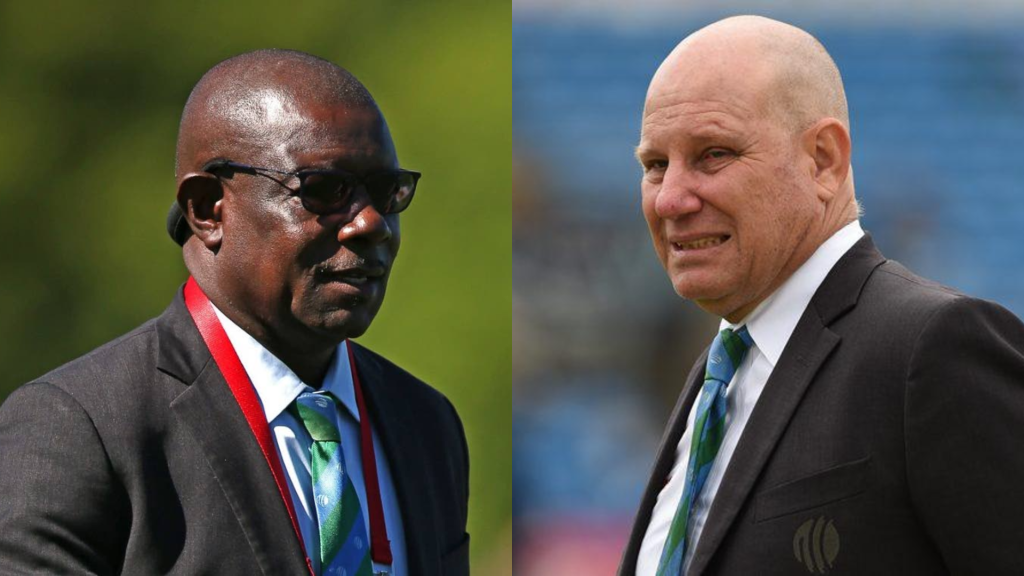In a significant development ahead of Pakistan’s crucial Asia Cup group stage match against the UAE, Richie Richardson will replace Andy Pycroft as match referee, following a protest lodged by the Pakistan Cricket Board (PCB) with the International Cricket Council (ICC).
According to sources within the PCB, the change comes after a tense standoff with the ICC in the aftermath of Pakistan’s high-profile defeat to India on Sunday. Emotions ran high following the match, particularly when Indian players declined to shake hands with their Pakistani counterparts. Instead, they paid silent tribute to the victims of the Pahalgam terror attack, which claimed 26 lives.
The PCB took exception to various decisions and conduct during the match and formally demanded that Pycroft be removed from officiating further Pakistan fixtures in the tournament. The protest cited violations of ICC rules and regulations. However, the initial response from the governing body, signed by ICC General Manager Waseem Khan, formerly the PCB’s chief executive, rejected the appeal, adding to tensions behind the scenes.
After a day of speculation and closed-door negotiations, a compromise was reached. Sources within the PCB confirmed that Richie Richardson would now officiate the upcoming match against the UAE. The agreement provided PCB Chairman Mohsin Naqvi with what insiders described as a face-saving outcome. Naqvi, who also serves as Pakistan’s interior minister, reportedly met with Prime Minister Shahbaz Sharif earlier in the day, although officials insisted the meeting was unrelated to cricket.
A potential withdrawal from the tournament was considered, a move that could have cost the PCB an estimated 16 million US dollars in revenue. This financial strain was a critical factor, especially given the disparity between Pakistan’s resources and those of wealthier boards such as the BCCI.
The day’s uncertainty extended to team preparations. A scheduled pre-match press conference was cancelled just 90 minutes before players were due at the ground. Although speculation about a possible boycott continued, the Pakistani squad did arrive for training, albeit in a noticeably relaxed manner.
In stark contrast, the Indian team, still riding high from their emphatic win over Pakistan, completed a rigorous three-hour training session. Under the supervision of strength and conditioning coach Adrian Le Roux, players, including Shubman Gill and Abhishek Sharma, were seen performing Bronco runs, highlighting the team’s strong focus on fitness.
Pakistan’s session, however, drew attention for its unusually laid-back tone. Players engaged in a dated football passing drill, a warm-up exercise largely absent from elite-level cricket for over a decade. Though the mood seemed jovial on the surface, team sources suggested that the light atmosphere belied deeper tensions stemming from both on-field disappointments and off-field controversies.
Throughout the training period, no Pakistani players approached the Indian nets, where head coach Mike Hesson was seen overseeing intense drills. The physical distance between the two sides served as a subtle reflection of the strained political and cricketing climate currently surrounding the tournament.


